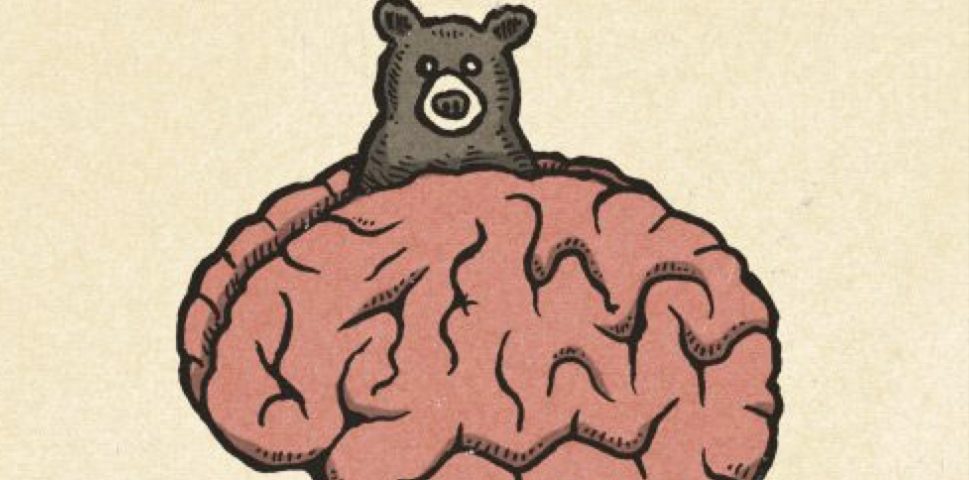
Pesky Hamstring Injuries
January 5, 2020
Another Way To Look At Shoulder Health
January 19, 2020Stress is the body’s reaction to any change that requires a response. The body can react to these changes with a combination of physical, mental and emotional response. You can experience stress from your environment, your body and your thoughts. There are two definitions to the term stress.
Body undergoes stress every time you move. This type of stress is defined as “pressure or tension exerted on a material object” and it is essential to our living. With human ability to adapt, physical stress causes adaptability that makes muscles and joints stronger, more flexible or more coordinated. Let’s take a beginner to running as an example, at the start they struggle to control their breathing (stress to the lungs), the legs may get tired quickly (stress to legs) and the arms become fatigued (stress to arms). After some time, these stresses strengthen the legs and arm and improve lung capacity so the person can run for longer or faster. The type of stress will determine the type of adaptability; if the stress is slow running for long time – endurance builds up, but if the person runs short distances and very fast – speed and strength builds up.
 The other type of stress involves the mind and can be defined as “a state of mental or emotional strain or tension resulting from adverse or demanding circumstances”. This type of stress can keep us alert, productive, motivated, can help us learn and avoid danger.
The other type of stress involves the mind and can be defined as “a state of mental or emotional strain or tension resulting from adverse or demanding circumstances”. This type of stress can keep us alert, productive, motivated, can help us learn and avoid danger.
The human body is designed to experience stress and react to it and a part of normal living, without stress we don’t learn, develop or survive. Stress will become negative when a person faces continuous exposure to stress without relief or relaxation between stressors. Currently, chronic stress is on an upraise globally and majority of the people are unable to identify and deal with a build-up of stress adequately.
Researcher Jeansok Kim and David Diamond came up with three-part definition of stress that they found to be happening in every stressed individual, in order to help people to identify and deal with chronic stress.
1. A measurable physiological response. There must be an aroused physiological response to stress that must be measurable or observable by an outside party. This could include screaming, crying, increased blood pressure, lack of sleep, generalized pain with no obvious injury, etc.
2. Desire to avoid the situation. The stressor must be perceived as aversive – something that, if given a choice, you would rather not experience. For example, running away from the spider, avoid meetings or people etc.
3. Sense of a loss of control. The person usually feel that things are out of their control. The more the loss of control, the more severe the stress is perceived to be. Element of control has a twin – negative predictability or otherwise known as future telling. Individuals will often engage in a thought such as “if I address this, I will be somehow punished”.
Biology of stress in the brain can be described as a battle between two molecules; the stress hormone – glucocorticoid and anti-stress hormone – Brain Derived Neutrophic Factor (BDNF). Glucocorticoid can do truly nasty things to the brain if given free access and that is exactly what happens in chronic stress. Glucocorticoid has a particular like to hippocampus, which deeply involved in many aspects of human learning. The stress hormone can disconnect networks, the webbing of brain cells that store memories. Good news is that this only occurs in severe cases of stress – such as amnesia in response to catastrophic stress. The symptoms chronic stress manifests as forgetfulness, this is often observed in new mothers, “since my pregnancy I have become very forgetful”. Ladies it’s nothing to do with the pregnancy, it’s the life stresses of having to tend to a baby 24/7. Chronic stress can also stop hippocampus from sprouting brand new neurons and creating new networks (learning). So quite literally, severe stress can cause brain damage in the area of the brain that most likely help you succeed in life.
Another factor of prolonged stress is that it can push people into depression. Not the “blues” that people can experience as normal part of living, nor the grief resulting from tragic circumstances. The kind of depression that causes as many as 800,000 people a year attempt suicide. It is a disease every bit as organic as diabetes, and often deadlier. Depression is a deregulation of thought process, including memory, language, quality reasoning, fluid intelligence and spatial perception. Many people who feel depressed also feel there is no way out of their depression. They feel that life’s shocks are permanent, and thing will never get better, even though there is a way out – treatment is often very successful. The situation may seem so helpless that they don’t seek help or treatment. Yet, you can no more argue your way out of a depression than you could argue your way out of a heart attack.
 The stress antidote, BDNF, in the hippocampus acts like a peacekeeping force, keeping all neurons alive and growing in the presence of hostile environment. As long as there is enough BDNF around, stress hormone cannot do any damage. The problem begins when too many stress hormones hang around for too long in the brain, a situation you find in chronic stress, especially during learned helplessness. As wonderful as the BDNF forces are, it is possible to overwhelm them if they are assaulted with a sufficiently strong or sufficiently lengthy glucocorticoid siege. In sufficient quantities, stress hormones are fully capable of turning off the gene that makes BDNF in hippocampal cells, causing long-lasting damage.
The stress antidote, BDNF, in the hippocampus acts like a peacekeeping force, keeping all neurons alive and growing in the presence of hostile environment. As long as there is enough BDNF around, stress hormone cannot do any damage. The problem begins when too many stress hormones hang around for too long in the brain, a situation you find in chronic stress, especially during learned helplessness. As wonderful as the BDNF forces are, it is possible to overwhelm them if they are assaulted with a sufficiently strong or sufficiently lengthy glucocorticoid siege. In sufficient quantities, stress hormones are fully capable of turning off the gene that makes BDNF in hippocampal cells, causing long-lasting damage.
The question is how can you prevent this from happening?
First and foremost, all of the evidence points in one direction – physical activity is cognitive candy. Exercise increases the level of usable BDNF in the brain, in the cells that need it the most. Exercise also increases blood volumes in a region of the brain called Dentate Cyrus – which is a big deal. The Dentate Cyrus is a vital constituent of the hippocampus, a region deeply involved in memory formation, so literally exercise makes us smarter.
Secondly, the focus on thoughts is very important, having a negative mind set hurts our immune system. An experiment was done with method actors. Method acting is a group of techniques actors use to create in themselves the thoughts and feelings of their character, so as to develop lifelike performances. The first part of the study involved actors performing using only happy memories and, on another day, using only sad memories. Doctors took blood to examine the state of their immune system on both days. On happy days, the actor’s had healthy immune systems, the immune cells were plentiful, strong and readily available for work. On the sad days, the actors showed a marked decrease in the immune responsiveness. The immune cells were very few, not robust and not as available to protect against infections. It is generally known, that individuals which are unhappy at work will have more sick days, the unhappier they are –more sick days they take.
Only the individual undergoing “sad day” stress responses has the POWER to reverse this, by choosing to shift the focus from the bad or sad to something good. Take more time to appreciate the good around you and stay away from indulging in complaining about the bad. The more focus is shifted onto the bad the more glucocorticoid is released into the brain, and the longer you keep that focus – the longer the glucocorticoid siege is on the hippocampus.
Take control now. Shift your focus onto the nice things around you, and exercise more often.
Alexandra Z.


